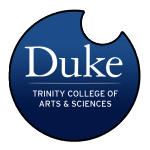DUKE UNIVERSITY DEPARTMENT OF ROMANCE STUDIES is pleased to be partnering with the El Quixote Festival, a statewide celebration commemorating the 400th anniversary of Miguel de Cervantes Saavedra’s two volume work which is often referred to as El Quijote (Don Quijote). The Don Quixote Maratonica will culminate the year-long celebration with a marathon reading of the Quijote which will take place during the week of April 18-22, 2016 across North Carolina at multiple locations.
Romance Studies are an exploration of the languages, literatures and cultures of areas that speak Latin-based, or Romanic languages such as Haitian Creole, French, Italian, Portuguese and Spanish. Our goal is to connect language and literature with culture, history and politics through deeply interdisciplinary scholarship.
Our curriculum, from language to culture courses, explores the rich traditions of Spanish, French, Portuguese, and Italian cultures, both in their countries of origin, and in the cultures of diaspora, including Latin America, the Caribbean, Quebec, and the Chicano border. Our research thus covers, both historically and geographically, an extensive area of the planet: from Europe to Africa and South America; from the Caribbean to the Philippines; from the Mediterranean to Indochina and the Mauritius Islands.
The cultures taught in Romance Studies are those of the earliest European and American vernaculars and of today’s global world; those of the Renaissance, and of postmodernism; of the Enlightenment, and of deconstruction; of European hegemony, and of Muslim Al-Andalus; of European colonialism, and of the de-colonial thought of Franz Fanon, Antonio Gramsci, and Amilcal Cabral.
The courses we offer intersect with different fields and areas of interest, such as Latino, European, Mediterranean and Caribbean Studies; Visual Studies and cinema; the culture and politics of Orientalism; the history of science and its relation to the humanities, from Galileo and Descartes to Bachelard and Serres; the pedagogy of Freire and Mariategui. Our courses, in short, bring students to reflect on both historical and contemporary questions critical to continued life on the planet — a reflection that we deem essential for today’s university to promote, both for students who will continue specialized studies in the humanities, and for students who will bring their thoughtfulness and experience in their careers in management, law, government, journalism, or the natural sciences.

